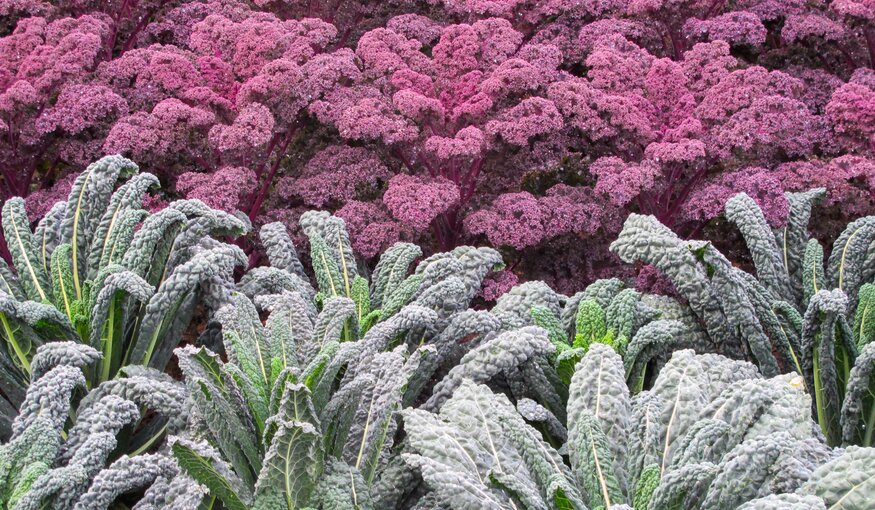19 July 2023
 Photo: Charlotte Allender
Photo: Charlotte Allender
To some people, broccoli is like math: You’re pretty sure that you won’t enjoy it, so you assume that you need to sugar-coat it – or, rather, cheese-coat it – for it to become somewhat palatable.
But what if we were kinder to broccoli? After all, together with its not-so-distant relatives, such as cabbage, kale, turnip, mustard, and pak choy, broccoli and its extended family, known as brassicas, have established themselves as global culinary staples that add much-needed crunch, kick and fiber to our diets.
Brassicas are not only nutritionally important, but also culturally and economically. Brassica oleracea, which is what scientists call a large group of the brassicas, bears witness to centuries of careful selection by farmers, resulting in a diverse spectrum of varieties. Cabbage and curly kale have become beloved for their luscious leaves, while cauliflower and broccoli enchant us with their tightly bunched flowers. Brussels sprouts present perfectly formed buds, and kohlrabi not only offers high levels of Vitamin C, but also sounds cool.
Brassicas extend far beyond oleracea, though. Species such as black mustard, brown mustard and rapeseed have seeds that serve as sources of oil and condiments. Brassica rapa encompasses leafy, seed and root vegetable forms, including the turnip. In addition, kale and Abyssinian cabbage can be fed to livestock as fresh fodder crops.
Brassicas contain bioactive compounds that profoundly impact human health. Among these compounds are glucosinolates, a group of bitter sulfur-containing chemicals known for their potential anti-cancer properties. Notably, modern breeding techniques have yielded low-erucic acid Brassica varieties, such as canola, ensuring a healthier choice for cardiovascular well-being.
Yet, despite their popularity and use in dishes around the world, brassica diversity faces a pressing need for conservation. Climate change and evolving agricultural practices pose significant threats to traditional varieties and their wild relatives. To address this, the Crop Trust, in collaboration with the German Federal Ministry of Food and Agriculture (BMEL), supported the development of a Global Strategy for the Conservation of Brassica Genetic Resources.
The authors of the strategy call for supporting genebanks in regenerating seeds, identifying unique diversity, improving documentation and fostering networking among the holders of diversity collections.
Brassica seeds don’t live forever, even in the best genebanks. So the strategy prioritizes building the capacity of genebanks to regenerate seeds. That will ensure that diversity remains available to potential users for the long-term.
The strategy’s authors also recommend that, to better target resources for conservation, the brassica network should identify duplicate materials using existing collection information and genetic approaches.
They recognize this will be far from straightforward, but more collaboration and the establishment of a structured global network of collection managers, building on that of the European Cooperative Programme on Plant Genetic Resources (ECPGR), will certainly help. Whether you like broccoli and maths or not, that sounds pretty palatable.
Download the Global Strategy for the Conservation of Brassica Genetic Resources